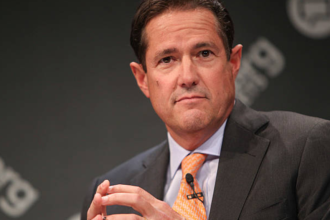New regulations aim to end deceptive practices and make cancellations as easy as sign-ups.
How Will the FTC's 'Click to Cancel' Rule Protect Consumers?
Adopting a new “click to cancel” rule, the US Federal Trade Commission (FTC) has moved in an attempt to streamline the subscription process for American consumers. Set to take effect six months from now; this control will force businesses to make it as simple as it is to sign up for subscriptions for consumers to cancel.
The rule covers retailers, gyms, and digital services. Companies must get client permission before extending any subscription or turning free trials into paid memberships. The new structure aims to shield consumers from time-consuming and aggravating obstacles when discontinuing unwelcome services.
How Will the New Rule Ensure Fairness in Subscription Practices?
FTC chair Lina Khan stressed the need for these adjustments: “Too often, businesses make people jump through endless hoops just to cancel a subscription.” The FTC’s rule will save Americans money and time by ending these scams and traps. Nobody should be left footing bills for a service they no longer value.
Under the new law, businesses cannot force consumers to cancel via convoluted channels, including chatbots or contact center workers, if they first registered using an app or website. This implies that someone who subscribes online has to be equally easily able to cancel online.
For in-person sign-ups—like gym memberships—businesses must provide a phone or online cancellation choice. The rule guarantees people more power over purchase selections by ensuring businesses cannot lock consumers into subscriptions with secret policies.
What Legal Actions Led to This Change?
Last year, the FTC’s war on misleading subscription policies got impetus when it sued Amazon, the behemoth online retailer. The FTC claimed Amazon purposefully made it impossible for consumers to revoke Prime memberships, which usually automatically renew. The lawsuit claims that Amazon’s website was built to encourage consumers—often during the purchase process—to enroll in Prime subscriptions without providing a straightforward cancellation means.
Amazon refuted the claims. Still, the FTC’s actions highlighted the growing need to control how companies handle subscription services, particularly considering automatic renewals are involved.
How Are Hidden Fees and Complex Processes Being Addressed?
Not only is Amazon one well-known corporation under fire, but others include Adobe. In pursuing legal action against software behemoth Adobe, the FTC also accused the business of trapping consumers with a complex cancellation process and hidden penalties.
Adobe allegedly broke consumer protection rules by not fully disclosing the parameters of its memberships, particularly the length of commitment and the expenses associated with canceling early. The FTC claimed that when consumers first registered, Adobe’s subscription model unfairly punished them with unclear charges.
Though it has not significantly changed its subscription policies, Adobe has contested the FTC’s assertions. These cases, however, have made other businesses aware that under the FTC’s new regulation, dishonest methods regarding subscriptions will not be accepted.
How Are Other Countries Addressing Subscription Traps?
Fair subscription policies are not unique to the United States. The Digital Markets, Competition, and Consumers Act, which the United Kingdom unveiled in May 2024, also tackles deceptive subscription structures. Like the FTC’s ruling, UK law requires companies to give clear, upfront information when consumers sign up for a subscription.
UK companies also have to tell consumers when a free or low-cost trial is about to finish so they avoid unintentionally signing up for pricey subscriptions. In line with worldwide initiatives to shield consumers from evil activities, the rule also forces businesses to provide basic ways for customers to terminate contracts.
What Does the Future Hold for Subscriptions and Consumer Rights?
With subscription services becoming increasingly common in the digital era, the FTC’s new rule marks a significant turn toward consumer protection. The emergence of streaming platforms, delivery services, and software subscriptions has created an atmosphere where cumbersome cancellous and automated renewals are frequent grievances.
Companies that lock consumers in with these strategies will now have to change. Under the “click to cancel” regulation, customers can choose the services they wish without worrying about getting caught in a never-ending loop of renewal payments. “This rule is about fairness—ensuring that consumers have an easy and open means to discontinue a subscription they no longer require,” Khan said.
Although businesses could object to the rule, the FTC’s strong posture suggests that consumer-friendly and open subscription-based services will define their future. As the rule takes effect, American consumers could expect simpler subscription experiences, fewer hidden costs, and easier cancellations.
Finally, the FTC’s “click to cancel” rule represents a significant victory for consumer protection since it promises to eradicate annoying and dishonest behavior that has been all too frequent in the subscription economy. Using this new rule, the FTC seeks to level the playing field and ensure that companies cannot exploit weaknesses to trap consumers into unwelcome services.








